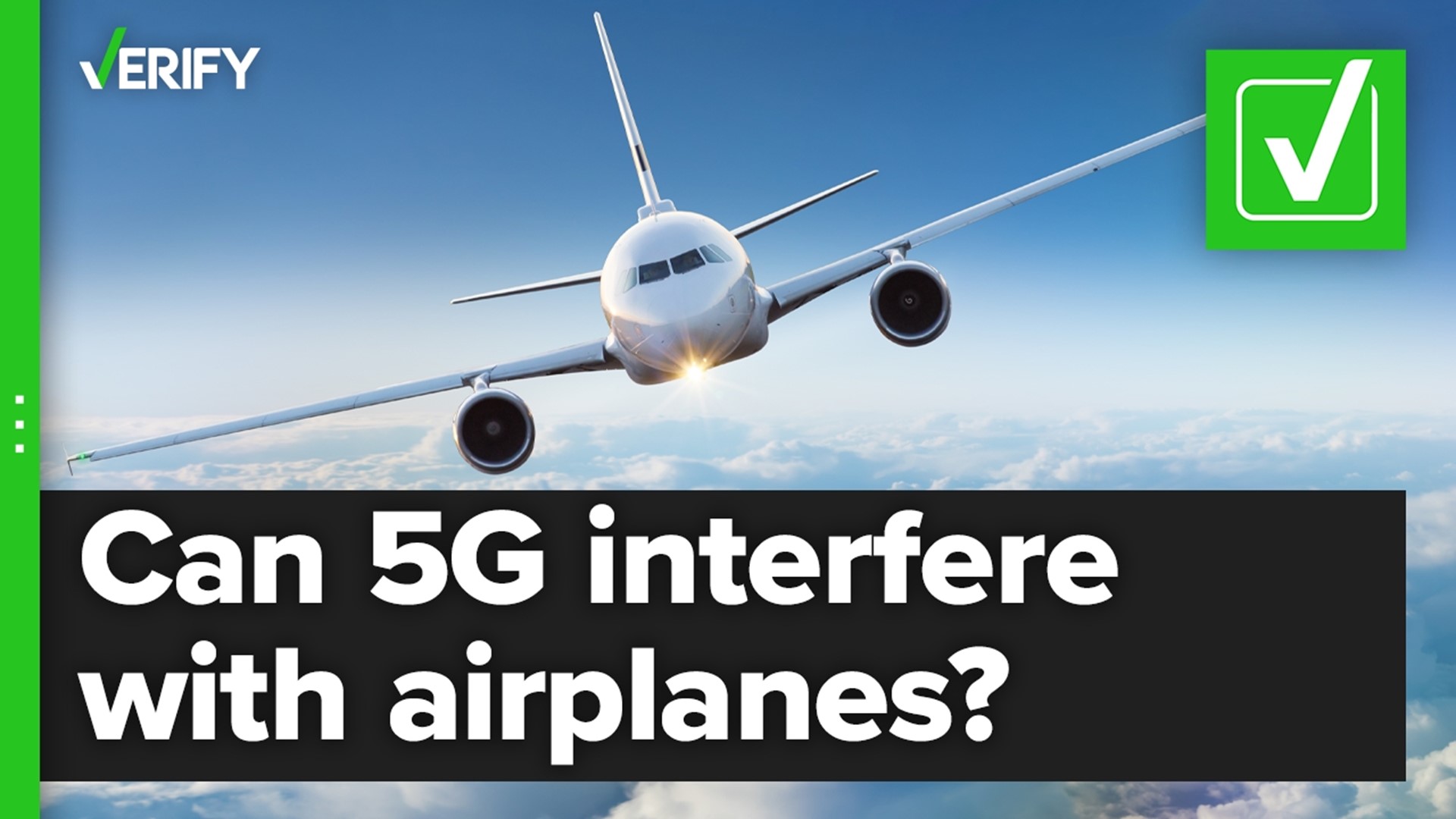WASHINGTON — Two of the largest cell service providers in the U.S. have agreed to temporarily hold off on implementing a 5G network after pleas from U.S. Transportation Secretary Pete Buttigieg and the Federal Aviation Administration.
Buttigieg and FAA Administrator Steve Dickson sent a letter to the two companies last week requesting that they delay the rollout of C-Band 5G services across the U.S. over fears that it would impact airline traffic.
In the letter, dated Dec. 31, 2021, the federal officials warned of "widespread and unacceptable disruption as airplanes divert to other cities or flights are canceled, causing ripple effects throughout the U.S. air transportation system."
The U.S. is already in the midst of a flight disruption crisis, with thousands of flights canceled or delayed since Christmas weekend. Airline officials say COVID-19 is the main culprit, with flights unable to find the necessary amount of crew members to take off because so many are quarantined.
Initially, AT&T and Verizon both appeared ready to either ignore the request or take the matter to court if the FAA moved to block the rollout.
But by Tuesday, both telecom giants indicated they are willing to work with the government on the matter. Both companies, as well as the FAA, confirmed that an agreement had been reached.
"The FAA thanks AT&T and Verizon for agreeing to a voluntary delay and for their proposed mitigations," Maria Njoku, an FAA spokesperson, wrote in a statement. "We look forward to using the additional time and space to reduce flight disruptions associated with this 5G deployment."
FAA officials confirmed that the two companies have agreed to a set of mitigation measures similar to those used in parts of Europe.
These mitigation measures include reduced power to 5G towers situated close to airports.
The federal government's concern is rooted in a 2020 study that shows transmissions on the C-band spectrum (such as 5G) can interfere with a piece of equipment on an aircraft known as a radio altimeter. The instrument is how planes measure precisely how far they are from the ground when near an airport, allowing them to land safely, even with low visibility.
The worry isn't about cell phones carried by passengers, but instead that massive cell towers set up near major airports could affect nearby aircraft relying on radio altimeters to land.
The deal will delay the implementation of 5G technology to at least Jan. 19, and 5G towers would operate at a lower power near 50 U.S. airports.
A spokesperson for AT&T confirmed the company voluntarily agreed to a two-week delay of C-Band 5G services in order to implement the mitigation measures. In November, they agreed to lower 5G power for six months near airports while the FAA studied the impacts of the new technology on air travel.
"We also remain committed to the six-month protection zone mitigations we outlined in our letter," the AT&T spokesperson wrote in a statement. "We know aviation safety and 5G can co-exist and we are confident further collaboration and technical assessment will allay any issues.”
A Verizon spokesman also confirmed the news:
“We’ve agreed to a two-week delay which promises the certainty of bringing this nation our game-changing 5G network in January, delivered over America’s best and most reliable wireless network," said Rich Young.
President Joe Biden praised the agreement in a statement, calling it a "significant step in the right direction."
"This agreement ensures that there will be no disruptions to air operations over the next two weeks and puts us on track to substantially reduce disruptions to air operations when AT&T and Verizon launch 5G on January 19th," the White House statement said.

